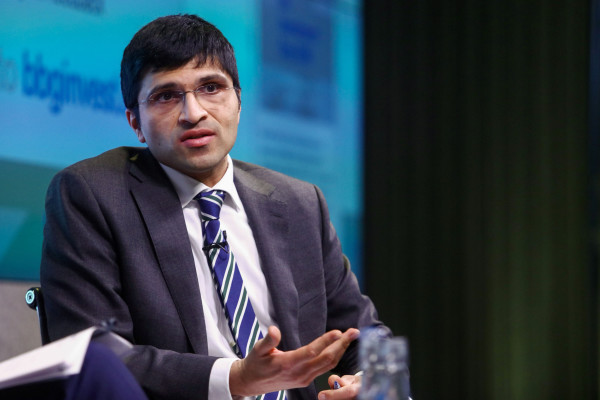

In a speech delivered at the Peterson Institute for International Economics in Washington DC yesterday (July 14) the FCA boss called for more international collaboration as he outlined how the regulator wants to future-proof the UK financial sector.
Rathi touched on the new consumer duty and said the FCA “wanted to break new ground” with it to ensure all firms take account of the actual impact of their services and product suitability on the consumer.
“Selling someone the right product, easily understandable with suitable customer service is hardly controversial but, too often, even established firms aren’t delivering,” he said.
Speaking about the UK's future outside of the European Union, Rathi told delegates: “Having departed from the EU, in the UK, we now have a vital opportunity to further adapt our regulatory system to respond to the challenges we are seeing today and continue to bolster the global reach of our wholesale markets."
Posture
Outlining a number of changes made by the FCA in the last year, Rathi said the regulator has already changed its operational posture.
“We are running more quickly to tackle complex issues, even if they are outside of our jurisdiction. And by maintaining high global standards, we remain a world leader in enabling innovation.”
Pointing to the fact the FCA has been expanding outside of London, Rathi said 500 FCA staff have joined this year working in Edinburgh, Scotland and Leeds, with 1,000 new staff expected before the year end.
He also commented he was encouraged to hear how many US financial services firms were actively looking to build presence in Scotland and the wider regions of the UK, to “tap the high-quality expertise and skills base they offer".
A different type of UK regulator
Explaining the changes made to how the FCA operates, Rathi said the regulator wanted to address threats, and not just address issues after significant harm or risk has been embedded.
He said it was investing in analytics tools, data and tech platforms and explained that a move last year of some of its core systems to the cloud would enable the FCA to identify and react more swiftly to firm and market issues.
The fact the FCA now automatically scans 100,000 websites a day for fraudulent or scam activity was also mentioned, while Rathi said the FCA was “increasingly holding firms to account”.
Reference was also made to a joint discussion paper with the BOE that will be published soon to set out new measures to tackle potential systemic risks posed by the financial services sector relying on the services of a small number of critical third parties – including cloud providers.
“Many of the issues we face also require an international response.
"We greatly value ongoing enforcement co-operation between the FCA and US agencies, including the SEC, CFTC and DOJ in particular, which has created an important set of precedents that demonstrate the ability to act effectively on a global basis.”
Crypto
Rathi also focused on crypto in the speech and said it was an area that posed both opportunities and risks.
He highlighted that the FCA’s remit is limited to anti-money laundering rules for platforms and said a significant number of firms who passed the requirements to register did so only after the FCA worked with them to improve their controls and systems.
“This approach should not be surprising. Many of you will be familiar with our regulatory sandbox – a safe space to test regulation around innovative new products. It has been widely emulated and has supported the development of dozens of UK blockchain firms,” he said.
Turning to diversity and inclusion, Rathi said the FCA is continuing to consider further regulatory interventions after its new rules for listed companies came out in April.
“This is a priority area. We are keen to promote diversity of thought and have been clear that diversity and inclusion is a regulatory issue.
"A failure to shape more diverse and inclusive leadership teams risks bias and left unchecked, can result in poorer risk management. Improved board effectiveness supports better conduct and reduces market harm.”
In relation to ESG, Rathi said the FCA’s aim was to support the financial sector in driving positive change, including the transition to net zero.
“The UK was the first major economy to mandate climate-related disclosures. We are now working with international partners as they develop their policies, to support the global efforts to transition to a low carbon economy.”
jane.matthews@ft.com



